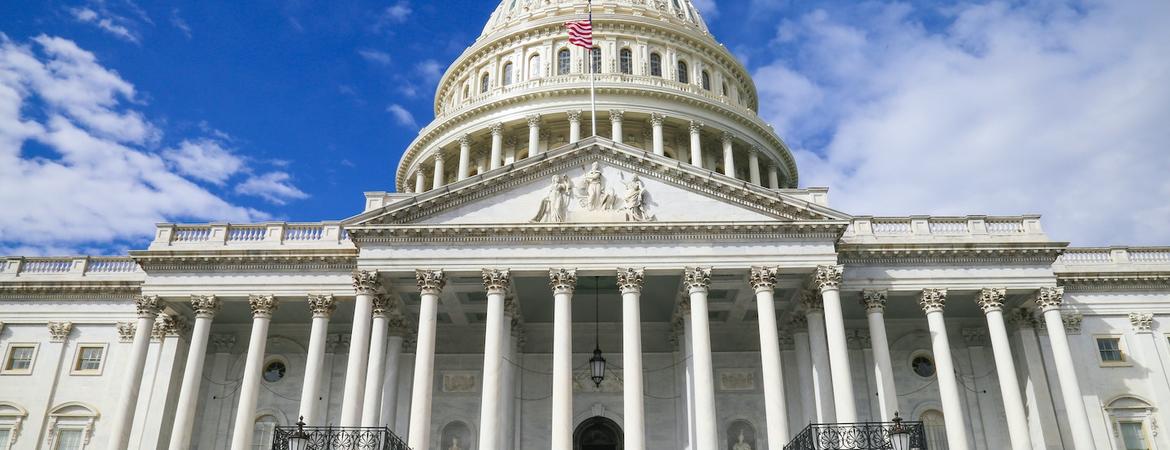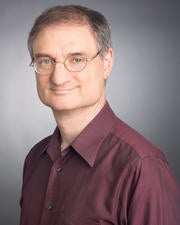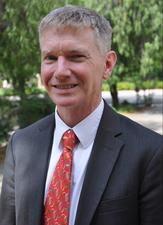
Faculty from the Graduate School of Education and the School of Public Policy at UC Riverside were awarded a highly competitive, $2 million grant from the Institute of Education Sciences, or IES. The project is a new collaboration between education and policy faculty, who will develop and test a social studies curriculum module that will give high school seniors an opportunity to meet with their member of Congress and then to reflect on that event through analytical writing. The project enables students to study a pressing issue - one that policymakers at the national level are grappling with - and then discuss that issue with their sitting member of Congress through an online deliberative town hall.
“We live in a time when there’s a lot of concern about the health of our democracy, and how to educate kids to participate in democracy,” said project co-leader Joseph Kahne, the Ted and Jo Dutton Presidential Professor of Education Policy and Politics and co-director of UC Riverside’s Civic Engagement Research Group. “The Connecting Classrooms to Congress initiative aims, in a tangible way, to create direct and informed dialog among the nation’s youth and between youth and their representatives.”
The three-weeks-long module will ask students to research all sides of a policy issue and teach them to judge the credibility of information they find. The selected topics will be controversial and of particular interest to high school students, such as immigration reform and environmental policy. Students will keep an online journal and be expected to understand multiple points of view. Later, they will use an online platform to discuss the issue with their elected member of Congress. The UCR Laboratory for Technology, Communication and Democracy has developed the online platform, called Prytaneum, which is designed to make town hall meetings more constructive and more deliberative.
“We’re excited for young people to be engaged in these deliberations. We know they want to have a voice when it comes to pressing issues but they are rarely invited in,” said project co-leader Erica Hodgin, co-director of the Civic Engagement Research Group. “We don’t want to wait till they’re 18. We want them to develop these skills earlier.”
The project draws on research by project co-leaders, public policy professor Kevin Esterling, who directs the Laboratory for Technology, Communication and Democracy at UC Riverside, and Michael Neblo, a political science professor at Ohio State University and director of the Institute for Democratic Engagement and Accountability. They found that people chosen at random to participate in online town halls with their member of Congress were more representative of eligible voters than people who actually voted.
More than a decade of their research demonstrated that, if designed well, online platforms can give individuals a more direct voice in government, which in turn can have desirable impacts on adults -- including enhanced policy learning, a willingness to hear diverse perspectives, and increased trust in government. The Deliberative Town Hall platform developed by Neblo and Esterling was recently cited by the Commission on the Practice of Democratic Citizenship of the American Academy of Arts and Sciences as a best-practice model for making Congress – and democratic institutions more generally – responsive and resilient in this era of reduced trust, misinformation, and extreme polarization.
“In a town hall, a full cross section of the community should be represented. The event should be inclusive,” Esterling said. “We thought high schools, which educate all the kids in the community, were a good cross section. We want to teach them these skills as they are entering the electorate.”
The push to bring town halls to schools draws from the research of co-principal investigator Jonathan Collins, an education, political science, and public policy professor at Brown University. Collins has been designing studies that show the value of incorporating elements of deliberation into school district and school-level decision-making.
“Deliberation is a tool that, when used properly, can truly empower kids and parents, particularly the ones on the margins of our society,” Collins said. “It’s a way to give literal voice to the people our political system too often neglects.”
After engaging in their town hall, students will also have the opportunity to watch a recorded town hall where this issue was discussed with a member of Congress from a different political party than their own. They will also have the opportunity to talk with students from this different community about the issue. Students will then engage in a writing exercise that may take one of several forms: a policy memo, a persuasive essay, a collaborative writing exercise with other students, or an article or post of some sort that raises awareness among the broader public.
With funding from IES, the social studies module will undergo pilot testing in Riverside 12th grade classrooms and in one other California community. The initiative will then be rigorously tested as part of a randomized control trial in dozens of schools drawn from a diverse set of communities in California, Illinois, and Florida.
Ultimately, the researchers hope this curriculum and the opportunity to engage with one's member of Congress will become available to schools throughout the country and will become a routine part of our representative democracy.
Header photo: Louis Velazquez on Unsplash






